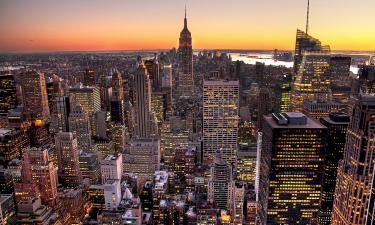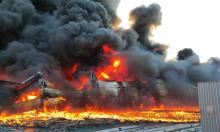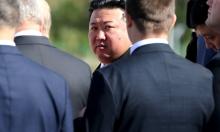Kosovo: Russia to be deprived of its ally in Europe
The list of bloody conflicts that sparked in the year 2022 may expand with another interethnic confrontation — this time between Kosovo and Serbia.
On July 31, the situation on the border between Serbia and Kosovo aggravated sharply.
The situation escalated after the authorities of the partially recognized Republic of Kosovo barred individuals holding Serbian documents and cars with Serbian registration numbers from entered the territory of the republic.
This decision of the Kosovo authorities triggered protests among the Serb population of Northern Kosovo. The riots came close to the point of armed clashes between the two hostile Balkan countries.
Kosovo conflict background
Northern Kosovo, which borders on Serbia, is an autonomous region that lives out of Pristina's control. The region is populated by ethnic Serbs. Contradictions in Kosovo between Albanians and Serbs are inter-ethnic, inter-confessional, as well as historical in nature.
After the liberation of the region from the Nazi occupation in 1944, the People's Liberation Army of Yugoslavia faced stubborn resistance from the Kosovo Albanians.
In the post-war period, the Serbs and the Albanians could coexist within the framework of Yugoslavia only against the background of rigid centralized power. Yet, peace was nowhere near: Kosovo Albanians would constantly complain about Belgrade violating their rights and freedoms.
It was during that period when Kosovo eyed secession from Yugoslavia and possible entry of the region into Albania.
To counter separatist aspirations of the Kosovars, Belgrade attempted to peacefully assimilate the province in 1959 by annexing it to Northern Kosovo, populated by ethnic Serbs. Belgrade thus implemented a policy to settle the Serbs throughout the territory of the Autonomous Province of Kosovo.
Decades later, this revision of the republic's borders as a federation laid the groundwork for a smoldering conflict.
After the collapse of the socialist camp, the active support of the West for the extremist Kosovo Liberation Army subsequently became the main reason for the NATO invasion of Yugoslavia (Operation Allied Force). The country was divided into several independent republics.
Belgrade lost control over Kosovo and Metohija. At the same time, Serb-populated Northern Kosovo remains under its protectorate. Local residents hold Serbian documents, and cars have Serbian registration plates on them. The Serbian dinar is used as the main currency (the rest of Kosovo uses the euro).
Stalemate for Serbia and Kosovo
Thus, there is a partially recognized Kosovo inhabited by Muslim Albanians within Serbia. Within Kosovo, there is Northern Kosovo, which is mostly populated by the Serbs.
The delicate balance was ensured by Belgrade's non-interference in the affairs of the Albanian part of Kosovo, and until recently — by Pristina's non-interference in the life of the Serbs in the north of the country.
Pristina authorities have made a number of attempts to forcibly change personal documents and car registration plates of the Serbs.
In October 2021, the brutal suppression of a Serb demonstration by Kosovo special forces almost led to the entry of Belgrade troops into Kosovo.
The implementation of Pristina's legislative initiative on the mandatory introduction of Kosovo documents and license plates for the Serbs has been postponed from August 1 to September 1 at the initiative of US Ambassador Jeff Hovenier. This leaves no doubt about the fact that the simmering conflict in the Balkans remains under total external control.
This is also evidenced by the fact that the sudden aggravation of the situation occurred shortly after the July 26 visit of Kosovo President Vyosa Osmani and Prime Minister Albin Kurti to Washington, where they held talks with US Secretary of State Anthony Blinken.
Today, Serbia is the only country in Europe (with the exception of Belarus, which is part of the Union State), which clearly supports Russia in all its foreign policy initiatives, including the special operation in Ukraine.
The prospect of depriving Moscow of its only ally in Europe is extremely tempting for the West, and especially for the United States and Great Britain that have distanced themselves from destructive political and economic processes in EU countries.
A month-long delay from the oppression of Kosovo Serbs is just an excuse to distract Belgrade from the world political agenda and undermine the popularity rating of the current leadership of Serbia. By September 1, tensions are to aggravate further.
Bloodshed is possible, but it is unlikely to be large as none of the opposing sides has a military contingent that would be able to resolve the conflict once and for all. Therefore, the Balkans are unlikely to become the epicenter of World War Three. This war is already on.
- The Republic of Kosovo has a 2-million-strong population and a 4,500-strong army.
- Serbia has a 7-million-strong population and a 28,000-strong army.
The NATO Mission in Kosovo (KFOR) declared its readiness to intervene in the conflict if stability in the north of Kosovo is threatened.
Serbian President Aleksandar Vucic, after a meeting of the Serbian General Staff, asked the international community to stop the conflict with Kosovo.
Speaking to the nation on Sunday evening, Vucic said that the Kosovo police would launch a military operation against Serbs living in the north of the partially recognized state at midnight on August 1. The country's authorities will block entry to anyone who does not have Kosovo documents and forcibly re-register Serbian license plates to local ones. The office of the Prime Minister of Kosovo, Albin Kurti, confirmed the information about the readiness of the authorities to such measures.
It was reported that alarms went off in the cities in the north of Kosovo, where ethnic Serbs live, and about 200 Albanians gathered at the bridge connecting the north and the south of Kosovska-Mitrovica. The Serbs started building barricades and blocked the main road from Pristina to Raska. Kosovo security forces and ambulances left for the scene. The Kosovo police reported that several shots were fired from the side of the protesters. According to them, there were no casualties. In turn, the Serbian Ministry of Defense declared that they were not involved in those events.
Aftewards, Vucic delivered another address, in which he stated that "the Serbian people from Kosovo and Metohija were not listening to his pleas." Vucic called for peace at all costs.
"I ask the Albanians to stop, and the Serbs not to succumb to provocations. <…> We will pray for peace and strive for peace, but let me tell you straight: there will be no surrender and Serbia will win. If they dare to start persecuting, bullying, killing Serbs, Serbia will win,” Vucic said.
Subscribe to Pravda.Ru Telegram channel, Facebook, RSS!




